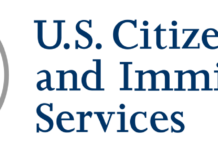Late last week, Treasury Secretary Janet Yellen raised alarms regarding the stability and oversight of nonbank mortgage lenders in the United States. During her appearance before the Senate Banking Committee, Yellen highlighted the Financial Stability Oversight Council’s (FSOC) concern over these entities, particularly given their lack of access to traditional banking deposits and reliance on short-term funding mechanisms. This scenario, she suggested, could lead to a potential failure of one or more nonbank mortgage lenders under stressful market conditions, posing a risk not only to the financial system but also to the broader economy.
Nonbank mortgage lenders, including entities like Quicken Loans and Rocket Mortgage, have seen rapid growth in recent years, filling a gap left by traditional banks in the mortgage lending space. These institutions have become a significant presence in the mortgage market, offering loans to consumers and playing a crucial role in housing finance. However, their business model, which heavily relies on short-term funding and lacks the safety net of deposit-based funding available to banks, makes them potentially vulnerable during financial downturns.
Yellen’s comments underscore the need for a regulatory framework that addresses the unique risks posed by nonbank lenders without stifling their ability to contribute positively to the housing market. A common-sense approach to such legislation would involve several key principles:
Tailored Oversight
Regulations should be specifically designed to address the risks inherent in the nonbank lending model. This means focusing on liquidity and funding risks, ensuring that nonbank lenders have access to stable funding sources, and setting aside adequate capital reserves to weather financial storms.
Protecting Consumers
Consumer protection should be at the heart of any new legislation, ensuring that borrowers dealing with nonbank lenders receive the same level of protection as those borrowing from traditional banks. This includes transparent lending practices, fair treatment in the event of defaults, and mechanisms to resolve disputes.
Encouraging Stability
Legislation should encourage practices that promote financial stability, such as stress testing nonbank lenders and requiring them to develop robust risk management frameworks. This could also involve creating a central clearing facility for nonbank lenders to access emergency funding, similar to the Federal Reserve’s discount window for banks.
Promoting Competition and Innovation
While addressing risks is crucial, it’s equally important that regulation does not stifle innovation or reduce competition in the mortgage lending market. Nonbank lenders have played a pivotal role in making mortgage credit available to a broader segment of the population, and any new rules should not hinder their ability to innovate or compete effectively.
Collaboration and Transparency
Developing effective regulation for nonbank mortgage lenders requires collaboration between regulators, the lending industry, and other stakeholders. Open dialogue can help ensure that the rules are practical, effective, and take into account the perspectives of all parties involved. Transparency in how nonbank lenders operate, their funding mechanisms, and their financial health will be crucial in monitoring and mitigating risks.
While the concerns raised by Yellen about the potential risks posed by nonbank mortgage lenders are valid, addressing these concerns requires a nuanced, common-sense approach to regulation. Such an approach should aim to safeguard the financial system and protect consumers, while also preserving the vital role that nonbank lenders play in the housing finance ecosystem. By striking the right balance, it is possible to ensure the stability and health of the mortgage lending market without curtailing the positive contributions of nonbank lenders.












